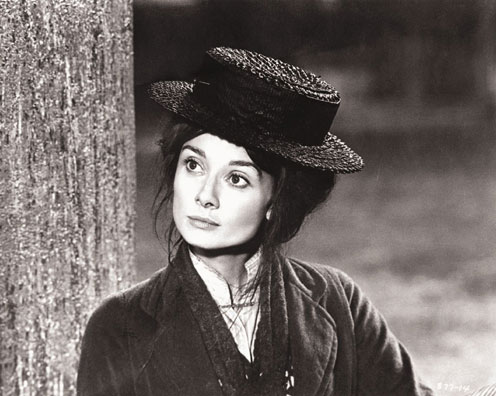Blog Entry Question #1: What are the main themes of the play?
Bernard Shaw, author of Pygmalion, wrote the play with a passion towards phonetics and the English language, and a clear message to convey. The play picks up on the issues associated with how horribly native English-speaking people butcher the English language. Bernard Shaw explored the British cockney accent of Eliza Doolittle, with the crude professor, Henry Higgins teaching her how to "speak beautifully, like a lady in a flower shop." (Act 2, page 34) Eliza's accent holds her back from progressing from selling flowers on the street to selling flowers in a shop. When she is taught how to speak english properly, she is passed off as a princess. It is proven, that with a bit of work at teaching her how to speak and act properly, the lowest, dirtiest person on the street can be turned into a beautiful duchess. One of the themes, therefore, is: with the use of proper language and pronunciation, comes class and intelligence.
 |
| Eliza before her English lessons, as a girl selling flowers on the street. |
The play "Pygmalion" also shows Eliza's growth from a sniveling, poor woman, to a strong, independent woman. Eliza discusses about what is to be done with her since they made her into a lady saying: "I sold flowers. I didn't sell myself. Now You've made a lady of me I'm not fit to sell anything else." (Act 4, page 78). She refers to the fact, that now that she is like a higher class woman, she can no longer go back to selling flowers, as she would be thought to be above that, so she is forced to marry. This statement questions why women of higher class are only fit for marriage, when women of the working class have a wide variety of options of things they could do. Henry Higgins, nearing the end of the play, also argues with Eliza, trying to convince her to come back in his controlling manner. But Eliza, instead, leaves Henry Higgins for good, showing that her decisions are her own, and marries Freddy. So, two themes come out of this: rich versus poor, and women's rights and independence.
 |
| Eliza, as a classy, independent woman. |
No comments:
Post a Comment